 Dr. Marjory Charlot, Assistant Professor of Medicine in the Division of Oncology, has been accepted into the 2020-2021 cohort of the Simmons Scholars Program. The Simmons Scholars Program supports the work and professional development of faculty members from groups underrepresented in medicine.
Dr. Marjory Charlot, Assistant Professor of Medicine in the Division of Oncology, has been accepted into the 2020-2021 cohort of the Simmons Scholars Program. The Simmons Scholars Program supports the work and professional development of faculty members from groups underrepresented in medicine.
 The Dean’s Performance Awards honor UNC School of Medicine staff members whose exemplary work has contributed to UNC achieving its vision of becoming the nation’s leading public school of medicine. Veronica has won the Community Service category.
The Dean’s Performance Awards honor UNC School of Medicine staff members whose exemplary work has contributed to UNC achieving its vision of becoming the nation’s leading public school of medicine. Veronica has won the Community Service category.
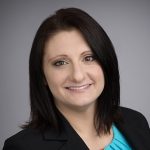 Stover receives ISOQOL Donna Lamping Emerging Leader Award
Stover receives ISOQOL Donna Lamping Emerging Leader AwardRead More
Whitney Robinson featured in Time magazine
Jessica Islam’s Video Abstract featured in The ASCO Post
Hanna Sanoff interviewed by ABC11 Eyewitness News
Katie Reeder-Hayes interviewed in ASCO Social Determinants of Health series
Cleo Samuel-Ryals named CREDS Director
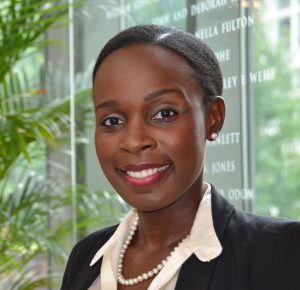
We are thrilled to announce that Dr. Cleo A. Samuel-Ryals, Associate Professor in the Department of Health Policy and Management at the Gillings School of Global Public Health, will be joining the CORP leadership team as founding Director of the Centering Racial Equity in Data Science (CREDS) Initiative. Dr. Samuel-Ryals has been a member of the CORP since 2014 and her research focuses on evaluating the systemic drivers of racial disparities in palliative and supportive cancer care and addressing such inequities through health informatics and data science tools (e.g., patient-reported outcomes). In 2019, Dr. Samuel-Ryals was honored as a ’40 Under 40’ Leader in Minority Health by the National Minority Quality Forum and Congressional Black Caucus. Moreover, in Spring 2020, Dr. Samuel-Ryals was appointed to serve a three-year term as a member of the National Academies of Sciences, Engineering, and Medicine’s National Cancer Policy Forum.
Please see below for special remarks from Dr. Samuel-Ryals regarding her new role.
CORP Members,
I am both excited and honored to serve in this new role as Director of the CREDS Initiative. The idea for CREDS was borne out of a heartfelt commitment and desire to advance racial equity in our work as cancer outcomes researchers. Over the past 14 years, I have devoted myself to studying and addressing racial inequities in cancer care using a variety of research methods, data sets, and data analytic approaches. Some of this work has involved using rigorous statistical methods and large data sets, while other aspects of this work have involved engaging and learning from and with community partners and survivors. Throughout this process of scientific inquiry, I have learned 7 key lessons at the intersection of racial equity and data science in cancer outcomes research:
- Center racial equity. Racial equity must be the forethought, and not the afterthought, as cancer outcomes researchers entrusted with data
- Data are powerful. That is, they can be used for great good, as well as for great harm. Therefore, whoever owns, uses, and/or manages access to data wields a tremendous amount of power that must be leveraged responsibly and equitably.
- Personal biases, both implicit and explicit, impact data science methodology. Our methods for data collection, data curation, data analysis, data visualization, data interpretation, and data-driven algorithm development are subject to racial bias, whether intentionally or unintentionally. This bias needs to be routinely “checked” through systems of transparency and accountability.
- Systemic racism is real and pervasive. Enough said.
- Procedural justice is essential. The voices of community partners, patients, and survivors of color matter and need to be meaningfully included in the data governance and research decision-making process.
- Homogeneity on research teams does a disservice to science. Racial diversity in team science must become the expected standard, not the “difficult to achieve” anomaly. We should pursue racial diversity on research teams, not just because it is the right thing to do, but because it also results in better science. To that end, recruiting, retaining, and training a diverse cadre of scholars in the field of cancer outcomes research needs to be prioritized.
- We each have a role to play. The reality of the matter is that, if you are not actively working towards advancing racial equity in the space you occupy as a cancer outcomes researcher, you are passively hindering the progress of this work by maintaining the status quo. So let’s join together and get to work!
Why the name CREDS?
As a kid growing up in Miami, Florida, I often heard the term “cred” used to describe a person or group that had a certain level of respect or credibility in the community based on their impact and track record. I intentionally chose the acronym, CREDS, to highlight my goal of bringing CREDibility to our racial equity efforts within CORP. Truth be told, however, neither I nor the rest of the CORP leadership team can do this work alone. Your engagement in these efforts is critical. Over the next several months, I will be working with the CORP leadership team to gather information on our collective progress in advancing racial equity in our research program. During this time, we will be reaching out to CORP members for input and recommendations. We hope you will partner with us in this effort as we work toward establishing new systems and approaches that shift the status quo and center racial equity in cancer outcomes research.
Respectfully,
CSR
Congratulations
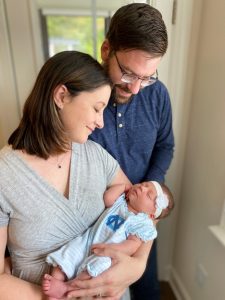 Ben Urick and his wife welcomed baby Caroline Elizabeth Urick on September 24, 2020.
Ben Urick and his wife welcomed baby Caroline Elizabeth Urick on September 24, 2020.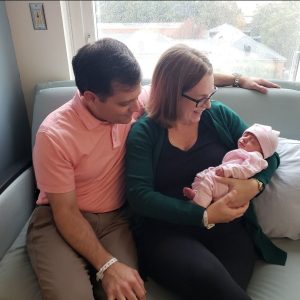 Emily Ray and her husband welcomed baby Margaret Louise Ray on October 23, 2020.
Emily Ray and her husband welcomed baby Margaret Louise Ray on October 23, 2020.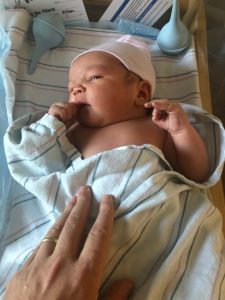 Megan Roberts and her husband welcomed baby Andrew Roberts Morgan on November 20, 2020.
Megan Roberts and her husband welcomed baby Andrew Roberts Morgan on November 20, 2020.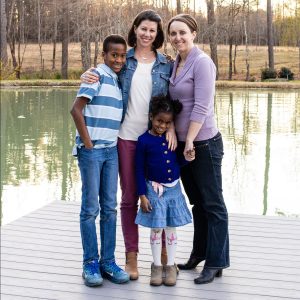 In October, Allison Deal and her wife formalized the adoption of their two kids, Zi’marie (age 12) and Miracle (age 6). They began fostering in 2018, and the kids have already lived with them for over 2 years. They are so excited to begin this new chapter in their lives! If anyone would like to learn more about becoming a foster parent, or helping kids & families who unfortunately find themselves in these situations, feel free to contact Allison.
In October, Allison Deal and her wife formalized the adoption of their two kids, Zi’marie (age 12) and Miracle (age 6). They began fostering in 2018, and the kids have already lived with them for over 2 years. They are so excited to begin this new chapter in their lives! If anyone would like to learn more about becoming a foster parent, or helping kids & families who unfortunately find themselves in these situations, feel free to contact Allison.Weddings

Cleo Samuel-Ryals married partner Tony in a virtual ceremony on October 24, 2020. Their story and wedding were featured in the New York Times– read more here.
 Marci K. Campbell Dissertation Award presented to O’Leary
Marci K. Campbell Dissertation Award presented to O’Leary Smith Honored with 2020 Phillip and Ruth Hettleman Prize
Smith Honored with 2020 Phillip and Ruth Hettleman Prize Nielsen Named Chair, UNC School of Medicine Department of Urology
Nielsen Named Chair, UNC School of Medicine Department of Urology